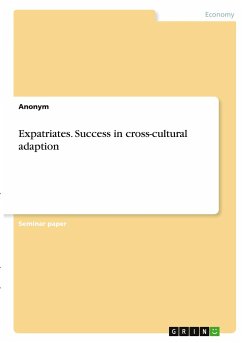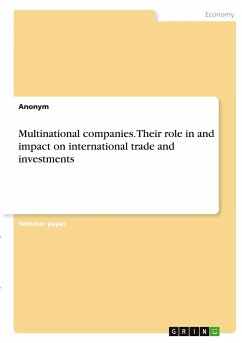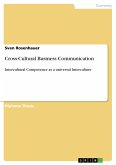Seminar paper from the year 2020 in the subject Business economics - Miscellaneous, grade: 1,3, Hochschule Ostwestfalen-Lippe - University of Applied Sciences, course: International Aspects of Managment, language: English, abstract: The internationalisation of the economy is evident in many areas. The exchange of goods services and technologies, as well as the foreign direct investments (FDIs) of multinational companies (MNCs), increased rapidly over the past decades. The increased FDI volume led to an increasing number of expatriates that are sent from MNCs to observe and support the successful implementation of the investment. Expatriates are getting in contact with a new and unknown culture, which might cause problems in cross-cultural interaction. Many different studies show that a significant share of foreign assignments fails. In the studies, the share varies between 16-40 % of expatriates that fail to execute their business tasks and/or are not able to adapt to the new culture and environment. This can cause tremendous costs and loss of image for the MNC. The objective of this scientific paper is to define success and failure in cross-cultural adaption as an expatriate. It should become clear which characteristics and skills are particularly important in the selection process. Different measures should be presented that increase the chance of success for effective implementation of the business task, as well as intercultural integration. The scientific paper contains four chapters. At the beginning of chapter two, the key terms culture and expatriate are defined before their relation gets explained. Afterwards, possible problems and conflicts during the cross-cultural adaption in the new living and working environment are stated. In the new culture, many expatriates experience a culture shock. The w-curve model shows the emergence and recovery of a culture shock in the new country and after returning home. Then important skills and criteria for selecting are explained to find the most suitable expatriate. The second chapter ends with pre-departure measures that can enable a faster and better cultural-adaption process for the expatriate. The third chapter contains a case study based on a German expatriate in China. The cultural standards of the two countries are compared to discover cultural differences. Various measures are given to show how the execution of the business task and the cross-cultural adaption can be successful. In the last chapter, the key findings of this paper are summarised. The paper ends with a conclusion and an outlook, where further significant research needs are addressed.
Hinweis: Dieser Artikel kann nur an eine deutsche Lieferadresse ausgeliefert werden.
Hinweis: Dieser Artikel kann nur an eine deutsche Lieferadresse ausgeliefert werden.








